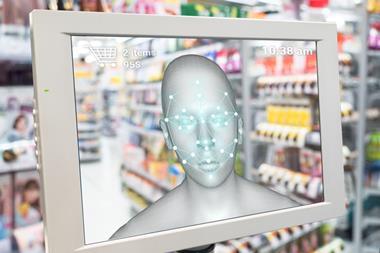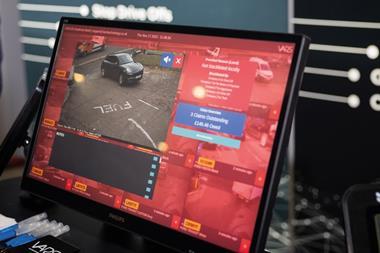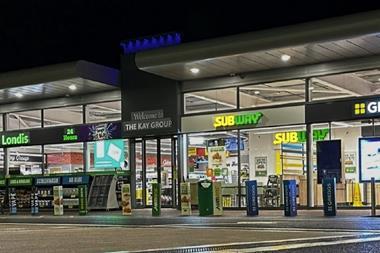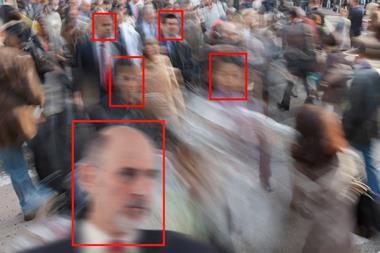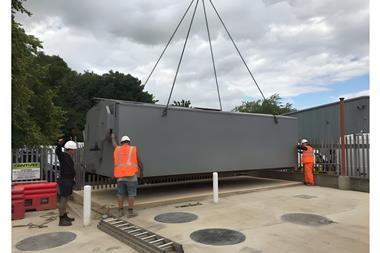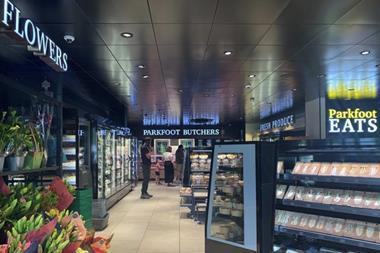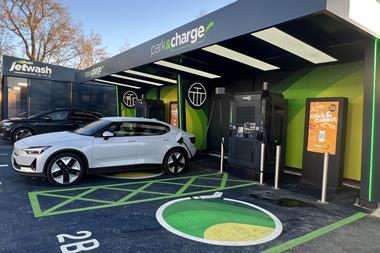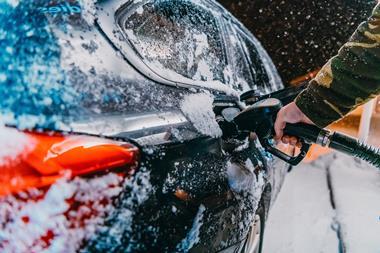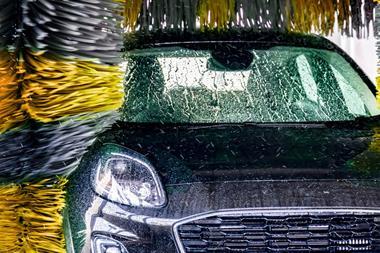
In the past, drive-offs were the scourge of petrol stations. Yes, they still happen, but not as often as no means of payment (NMoP) incidents.
According to British Oil Security Syndicate (BOSS) stats, NMoP accounts for approximately two-thirds of all forecourt fuel crime incidents.
And BOSS analysis has found that only 10% of drive-offs are the result of motorists deliberately filling up and then driving away from a pump. These people are not entering the store to pay for their fuel, which means 90% of drive-offs are motorists failing to pay once they enter the store.
Shockingly when the staff at BOSS follow up these non-payments, they often hear the same reply: “The cashier didn’t ask if I had fuel.” As if that were a good excuse!
Bruce Nichol, operations director at BOSS, says: “From a Crown Prosecution Service perspective, or from a policing perspective, as soon as you cross the threshold of the shop, into the payment area, you have shown an intent to pay for the fuel you have dispensed.
“We’d encourage all retailers to be extra vigilant, especially during busy periods, and when a motorist says ‘no fuel’, verify this by asking where they have parked.”
Retailer Roger Perry says staff training can definitely help with this: “I think the key thing here is that we have to do what we can to protect our businesses ourselves. We cannot rely on others to do this work for us. This might require investment however my experience is that targeted investment and staff training in this area can bring significant improvements. We instil into our cashiers that they must ask each customer, when they come to the pay point, if they have had fuel. This has reduced the problem for us quite significantly.”
With regard to NMoP, Nichol at BOSS, says there are people who go into a forecourt shop to pay with cards that they know won’t function. “However, there are people who do genuinely make mistakes. They genuinely come into a forecourt store and they have forgotten their wallet. That happens and the system that we’ve got in place is for those individuals who genuinely make a mistake.”
During Q1 2024 incidents of unpaid fuel were 5.8% lower than unpaid fuel reports in Q4 2023, leading to BOSS’s Forecourt Crime Index falling by 7.8 base points to 232.3 (241.2: Q4 2023), a level not seen since Q2 2022. Nichol says this is likely due to fuel prices coming down this year.
Analysis of BOSS’s Payment Watch debt recovery service for fuel retailers, estimates that there are around 1.5 million reports of unpaid fuel every year. In Q1 of this year, the average cost of a NMoP incident was £69, with drive-offs costing £52 per incident. This means that drive-off and NMoP incidents cost the forecourt sector about £100m per year.
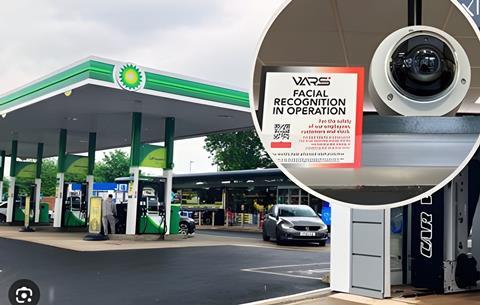
PROMOTIONAL CONTENT
VARS: protecting your forecourt
VARS Technology are the leading company in the UK when it comes to forecourt security.
VARS Technology developed a system that reads every vehicle registration entering and exiting the forecourt, it operates behind the tills, and alerts the cashier the second a vehicle of interest drives onto the forecourt. Currently, the VARS system is installed in about 1,200 forecourts across the UK, with different tiers available based on the needs of the retailer.
VARS not only blocks repeat offenders from committing more drive-offs or no means of payments, but they also go and pursue the debt as well. One major advantage of the system is the quick and simple process for forecourts to report drive-offs via a tablet, taking less than 30 seconds to report an incident.
Recently, VARS launched its facial recognition technology, and this has been introduced into forecourts and shops as a proactive measure to prevent crime and deter antisocial behaviour. This innovative system works like the ANPR system used in forecourts. When a crime occurs, the cashier reports it to VARS and the face is added to the watchlist, alerting when they walk into a premises in the local area that has VARS system installed.
| www.varstechnology.co.uk |
|---|

Nichol says common warning signals that a crime might be about to occur include:
• Driver still at the wheel; passenger filling up
• Open doors or open boot
• Number plates hidden or appear altered
• The lights of the vehicle are still switched on
• A vehicle is parked facing away from the kiosk towards an exit
• Customer trying to hide behind their own or another vehicle when filling up.
He says if something suspicious is happening on the forecourt, then staff could either:
• Try and make eye contact; this can be surprisingly effective if the person knows someone has seen them
• Use the Tannoy to make suspicious people aware you have noticed them on the forecourt. Ask them to check if their engine is off and to close open doors
• If the forecourt is manned by two or more staff, make regular walks out onto the forecourt to restock or clean the forecourt
• Don’t be afraid to request pre-payment; go with your instinct.
“At all times ensure that your CCTV system is working correctly, and the image is clear. Also, retain all CCTV images of drive-off or NMoP incidents as they may be needed as evidence at a later stage.”
Another piece of advice from Nichol is to try and make cashiers aware that vehicles can only hold so much fuel. He suggests giving them some basic information about fuel tank sizes as there have been cases of cars and vans having holes drilled into the side of them which lead directly to a container inside which is then filled up with fuel.
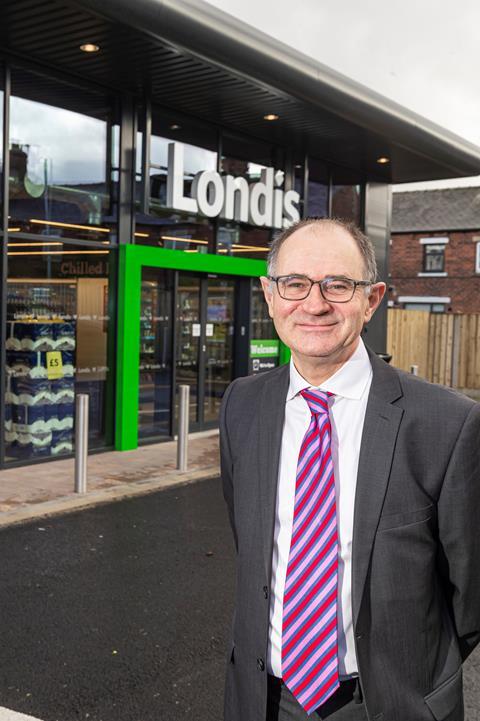
Watch It
Meanwhile, another way Roger is tackling the fact that some customers deny they have pumped any fuel is by using Big Brother’s Watch It CCTV system at his Prospect Service Station in Ossett.
“This has proved really worthwhile as we can very easily see what has happened and this then gives us all the proof we need should we decide to involve the police or use a debt collection agency. This system uses ANPR so we can get the system to raise the alarm should a vehicle that has previously not paid return. We also use this for customers who fill out a NMoP form. This has reduced drive-offs and enabled us to speak to customers who have not paid and returned to site. When talking to a customer and showing them the CCTV regarding a previous non-payment, the quality of the evidence we have usually results in payment being made. By doing this we have managed to keep this issue reasonably under control at Prospect and I am currently putting this system into my other site at Leven.”
The Big Brother system can be used as a standard CCTV system but Hendrik van der Velde, who heads up Big Brother sales in the UK, says it’s with the optional modules that it really comes into its own in tackling drive-offs.
The Fuel module links CCTV images to the pump transactions by integrating Watch-it with the Fuel Controller or POS system. The recordings start automatically as soon as the pump is being used. All images of this transaction are linked to each other: the customer, the pump, the cash register and the filling. This makes it very easy to retrieve the footage. The user-friendly overview of high-risk events, such as fuel theft, a pump test or a deferred payment, provides quick insight into the situation.
Thanks to the Car module on the system, the number plates of all customers at the pump are digitally read and stored. It recognises and registers known fuel thieves and when combined with Big Brother’s AutoAlert module, flags up registered fuel thieves and false number plates before the filling starts but integrating with the DVLA database in real time. This The Car+ software licence allows you to not only search by number plate, but also by brand, type and colour of the vehicle. These are practical search options, because the colour or type of a car is something that people easily know or remember.
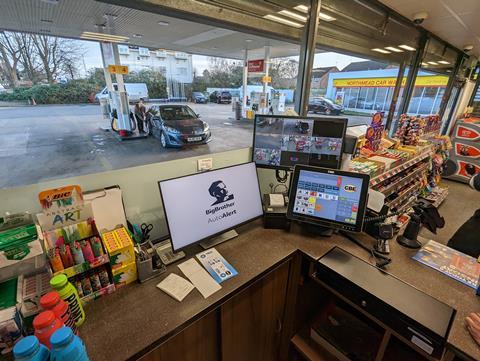
What is more, Big Brother has also just launched a debt collection service. Via Watch-it retailers can directly send drive-offs and NMoP details to the debt collector. Watch-it automatically generates a drive-off report with all required transaction details and images.
Van der Velde says: “Normally retailers need to work on their POS to retract the transaction details, work on their general CCTV system to retract the footage belonging to the drive-off or NMoP, and then work on a third-party tablet to centralise all this information before it can be sent to the debt collector.
“Watch-it automates this process by the system integrations with the POS and debt collector, saving retailers lots of time and also preventing faults made by employees. At this stage we don’t have a lot of information of the time it takes the debt collector to recover the money, because we’re just starting with this service in the UK market. What we do know is that the recovery rate will be around 70% in the combination of drive-offs and NMoP.”
Eurotank Service Group is Big Brother’s installation partner. Jack Aplin, group sales director, explains how the partnership works. “If we get an order from a customer or direct from Big Brother, we will scope out the site and decide how many cameras they need to cover the filling positions.
“Usually, one camera can capture multiple filling positions and then the cameras will be installed in relevant positions, be that the canopy, front of shop or stanchions, depending on the layout of the forecourt and what’s been pre-agreed.”
Eurotank will also install a monitor at the till point. This is where cashiers will be alerted with an audible alarm if a suspicious vehicle drives on, and the cashier instantly knows which pump they’re at.
Unfortunately for Roger Perry, shoplifting is also an issue for staff at his Prospect Service Station. “It is a large shop in a town centre location. I find that we have a small number of people who shoplift on a significant scale. I have good CCTV in the shop with few blind spots so we can usually see what is going on. I am lucky in so far as we have a good relationship with the local police. They have been successful in bringing a number of prosecutions in the last 12 months, three of which have resulted in people getting custodial sentences. I make sure that all our team members are aware of these people and wherever possible we refuse them entry to the shop.
“What we have noticed is that there are quite a lot of people who may pick up say three items in the shop and feel it is acceptable to put one in their pocket before they get to the till and then just pay for two. I suspect they feel they are stealing from a large corporate body, rather than a small business, thus making it acceptable in their minds.
“I have tried Veesion AI surveillance software to try and pick up thieves however this has proved costly and has not really worked for us. I think, for us, the solution is to have good old fashioned customer service so that my team knows most of our customers and therefore the ones to look out for. This is then backed up with good CCTV. “
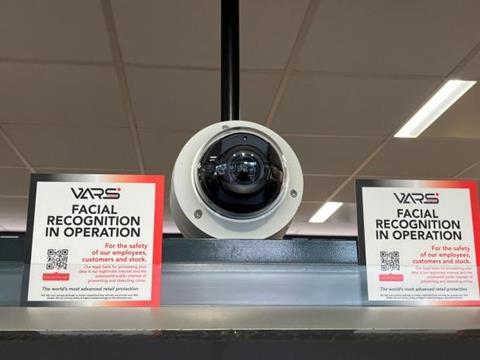
Popular system
John Garnett, director at VARS, says his company’s drive-off system is continuing to grow in popularity, day by day. “It is down to the fact we simply do what we say we are going to do. The ANPR system will reduce your drive offs. New customers are generally starting to get money back within the first week or two of using us because we are so effective.”
Andy Cotton, operations manager at Top 50 Indie Pearl Forecourts, uses the VARs system and says if he were to score it for effectiveness, he would give it 12 out of 10.
“All you need for it to work is a decent internet connection and you’re laughing. Some people think it’s a bit expensive but when you balance that against what it does, it pays for itself.
“If a car pulls up at a pump and its number plate is recognised on the system, we don’t let the driver dispense fuel – it’s as simple as that.
“We had a lady come in just recently whose car reg set off our alarms. She had only had the car two weeks and said she had bought it off a reputable dealer but the previous owner had committed a drive-off and it was flagged up on VARS. We had to say we couldn’t serve her and that she needed to speak to VARS and tell them she was the new owner.”
Another very satisfied VARS customer is Guy White at the Laurels Service Station. “It is honestly the best thing ever. As soon as a vehicle enters the site, it will flag up any previous issues before we authorise a pump… seriously it saves us thousands a year. And as users, we are all sharing knowledge, for drive-offs, NMOP, fly tipping, theft, aggression.
“For drive-offs and NMoP, VARS will chase and pay us back. My dashboard is very healthy and they are actively getting us paid, without any issues.”
The latest addition to the VARS suite of products is a facial recognition system. This captures images of all customers and compares them to a central list of known criminal faceprints. If the system identifies a known offender an alert is sent to staff either discreetly or for the whole shop to hear.
The central list is created by users who upload details of offenders, together with CCTV coverage, onto a portal for VARSto approve, checking for accurate reporting and compliance with GDPR data protection rules. The data is then shared across the network of users. The more retailers in one town or area use the system, the more effective it is at pinpointing repeat offenders.
Garnett describes the take up as ‘incredible’. “ Maybe it’s because it’s so cheap and the problem is so bad! Also it’s very much like the ANPR system, the more people that use it, the better it is for everyone, as the alerts are shared among other retailers so everyone protects everyone else.”
He says they have been able to stop shoplifters, deter future ones and massively reduce crime. Also the staff feel protected too, which is a very important factor.
“It’s simple, quick and easy to use. We just need the face image, a good description of the crime/incident and some evidence to back it up and we do the rest.”
VARS did a lot of testing of the system. Garnett explains: “We worked very closely with our customers during the development to make it the best system on the market. We listened to feedback such as how the customer wanted the alerts, and we have also managed to speed the alerts up so they are almost instant when a person of interest walks in.”
There are lots of signs across sites using the system saying the technology is in use. “All sites have CCTV anyway, so people are already being recorded. Our system doesn’t record it just monitors faces and snapshots them. If the person is not of interest the images are deleted, in line with data protection laws. Anyone can visit our privacy policy to see how we use their data.”
Garnett says images are very clean and, in most cases, the cameras are able to read people wearing hoods, masks or glasses.
Guy uses VARS’s new facial recognition service: “Theft is on the increase and we are constantly hit with one thing or another. When we catch someone, we put their reg on VARS and their face on the face recognition system, so if they enter the store again, we can be aware and deal with it. “
Data protection
In a bid to fight crime, it’s necessary to collect data – names and addresses as well as CCTV images. However, data security is receiving more and more attention, and complaints to the Information Commissioners Office (ICO) are on the rise. This means it’s imperative that retailers have policies and procedures in place to store and protect that personal data and are careful when they pass that information on to a third party. Under UK Data Protection Regulations, including the General Data Protection Regulation (GDPR) and the Data Protection Act 2018, a forecourt operator remains responsible for ensuring that the personal data it collects from a customer is processed securely and under data protection principles, even when handled by a third party.
Organisations such as BOSS have got a data sharing agreement with forecourts and it employs stringent measures to protect sensitive data related to motor vehicles and private individuals who use its Payment Watch services.
Its actions to ensure data security include: compliance with data protection laws; data encryption; access controls; regular audits and monitoring; data minimisation ie only collecting necessary data; using secure communication channels; having regular staff training; and having an incident response plan in place. BOSS also conforms to ISO 27001, which is the world’s best-known standard for information security management systems.
DVLA
Finally, last month, the PRA claimed victory in its long campaign to allow forecourt operators to access the DVLA’svehicle keeper details electronically for use in fuel theft cases.
Nichol describes the move as ‘fantastic’ but is worried the more recent change in government might mean it doesn’t actually happen. He says BOSS has a great relationship with the DVLA because of the huge number of requests it puts through to it every week.
“Digital access to vehicle keeper details would significantly improve operational efficiency for forecourt operators. It would reduce the administrative burden and associated costs of manually processing requests for information. However, digital access should be subject to strict security and data handling protocols.
“Moreover, quick access to accurate data will enable forecourt operators and law enforcement agencies to act swiftly, increasing the likelihood of recovering losses and deterring potential offenders.”























